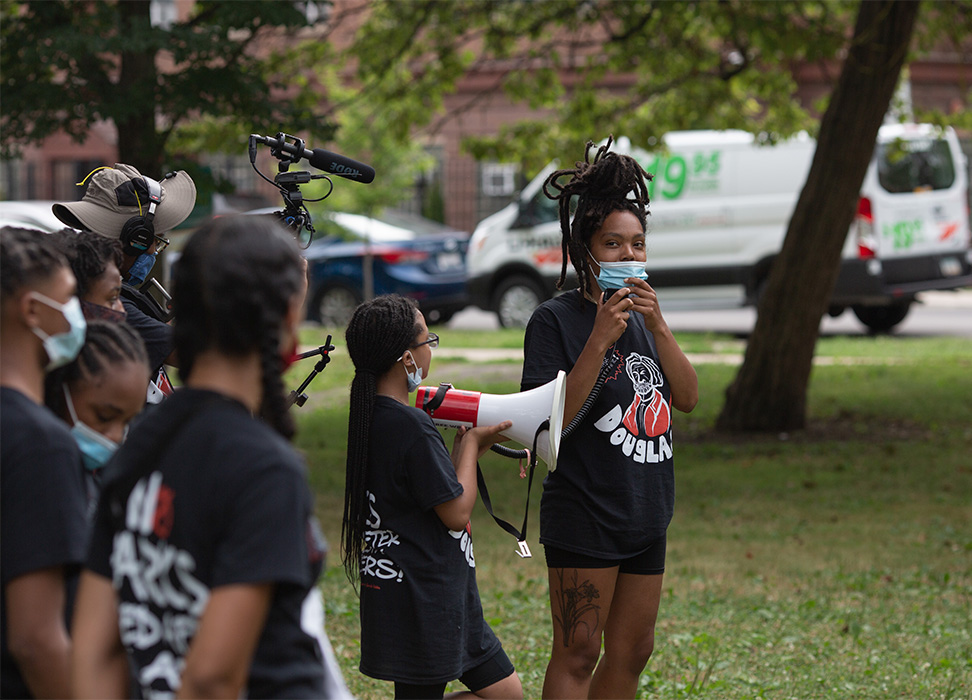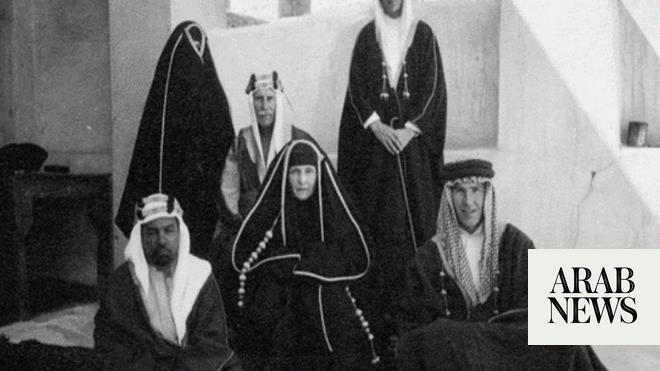
Names have a power. The right one can elevate, repurpose, or make concrete an abstract idea. For United States elementary school teacher Bianca Jones and her students, a name became a way to acknowledge the past and influence the present.
Jones taught fifth grade at Village Leadership Academy in Chicago, Illinois, where students engage in a social activism curriculum called “Grassroots Campaigns”. Each year students select a project to work on. Jones says she does this to help her students from this predominantly Black neighbourhood, develop positive ideas about themselves.
“When I"m working with young Black and Brown students in particular, I"m never focusing on racism, because that would be replicating trauma that already exists,” Jones said. “Students know [racism] exists because we see racism happen around us all of the time.”
One of the key narratives of the Learn, Speak Up, Act! Campaign launched by UN Human Rights on July 2022, is that everyone has the right to learn about the history of racism, slavery, and colonialism, and to be taught about human rights tools to fight against oppression, racism, and discrimination.
For Jones, the right to learn about history, even if it’s difficult, is crucial to instilling criticality, in a socially conscious framework for her students.
“So, we"re looking at a bit of what’s happening both historically and presently, and then we start to ask ourselves questions and we start to dig deep, and we start to unpack,” she said. “Where does racism exist here? Systemically, institutionally. How does this impact the most marginalised? How does this benefit those who have privilege?’”.
The past informs the present
In 2017, Jones’ student project focused on changing the name of a local park from that of a slave owner – Stephen A. Douglas – to that of abolitionists – Frederick and Anna Douglass. Her students believed it was insulting that a park in a predominantly Black community in Chicago bore the name of a slave owner, so they decided to speak up and act against what they considered an injustice, Jones said.
For three years, even after they’d finished the fifth grade, the students organized rallies, disseminated flyers, informed the community in the streets, on trains, etc. They presented their petition and proposal for the name change to the Chicago Parks District twice.
“We experienced resistance. It forced my students to fortify themselves and their beliefs. It forced them to double down, to fight back, to fight harder, to persist through that resistance and follow all the processes necessary to see it through to victory,” Jones adds.
The city agreed to the official change of the name of the park to Frederick and Anna Douglass Park in 2020.
Telling an important story
This quest and its results are the subject of the documentary film “Change the Name” by Cai Thomas. The film was shown during the 1st session of the Permanent Forum on People of African Descent in Geneva.
Jones said she was motivated to take on the name change project, because she wanted the Black children who lived in the area to have cultural references they could relate to.
“I feel like one of the tools of white supremacy is to make us constantly think that there was this horrible time that existed and that it happened in the past, but it"s being ignored or absolved itself from the racism that continues to happen today,” added Jones.
International human rights mechanisms recognise that the harms caused by colonialism and its legacies continue to make an impact today, and that concrete action is needed to tackle them.
The Durban Declaration and Programme of Action (DDPA, adopted in 2001), notes that colonialism led to racism and its consequences persist to this day. It underlines the importance of learning how to re-think the world through anti-colonial lenses and foster concrete action against the legacies of colonialism, and racism.
The DDPA states that the consequences of colonialism, slavery, and the slave trade need to be addressed so the lasting social and economic inequalities that feed discriminatory structures and institutions can be dismantled.
“
People who have racist beliefs, people who don’t believe that racism exist, also need your help. They need your help to understand why that’s wrong.
“
BIANCA JONES, EDUCATOR, CHICAGO, USA.
Thomas said that “It was a really beautiful experience to document the young folks and their educator Bianca Jones as they worked to get the park renamed. It’s a really empowering thing when a young person has an educator that looks like them, that cares about who they are holistically, and that’s what Bianca does, she cares about her students and who they become in the world.”
For Thomas this story is universal, proof of that is she had many people approaching her after the screening wanting to share the film of Jones and her students.
“This is the first time in my life I’m screening a film in person outside of the US and for it to be at the UN and for it to be at the Permanent Forum on People of African Descent it’s just an amazing experience that’s honestly hard to put into words,” Thomas said.
Speaking out against intolerances can lead to concrete actions, which are key in the fight against racism and discrimination. UN Human Rights recognizes that everybody has the power to tackle racism and discrimination, through the necessary courage and the will to act. In addition, the fight against racism, racial discrimination, and the legacies of colonialism is not a task only for those who suffer them.
“People who have racist beliefs, people who don"t believe that racism exists, also need your help,” Jones said. “They need your help to understand why that"s wrong. They need to be educated on the truth of what exists, therefore, and they might feel better, or they might understand it better hearing it from someone who looks like them, from someone who has a similar experience.”












